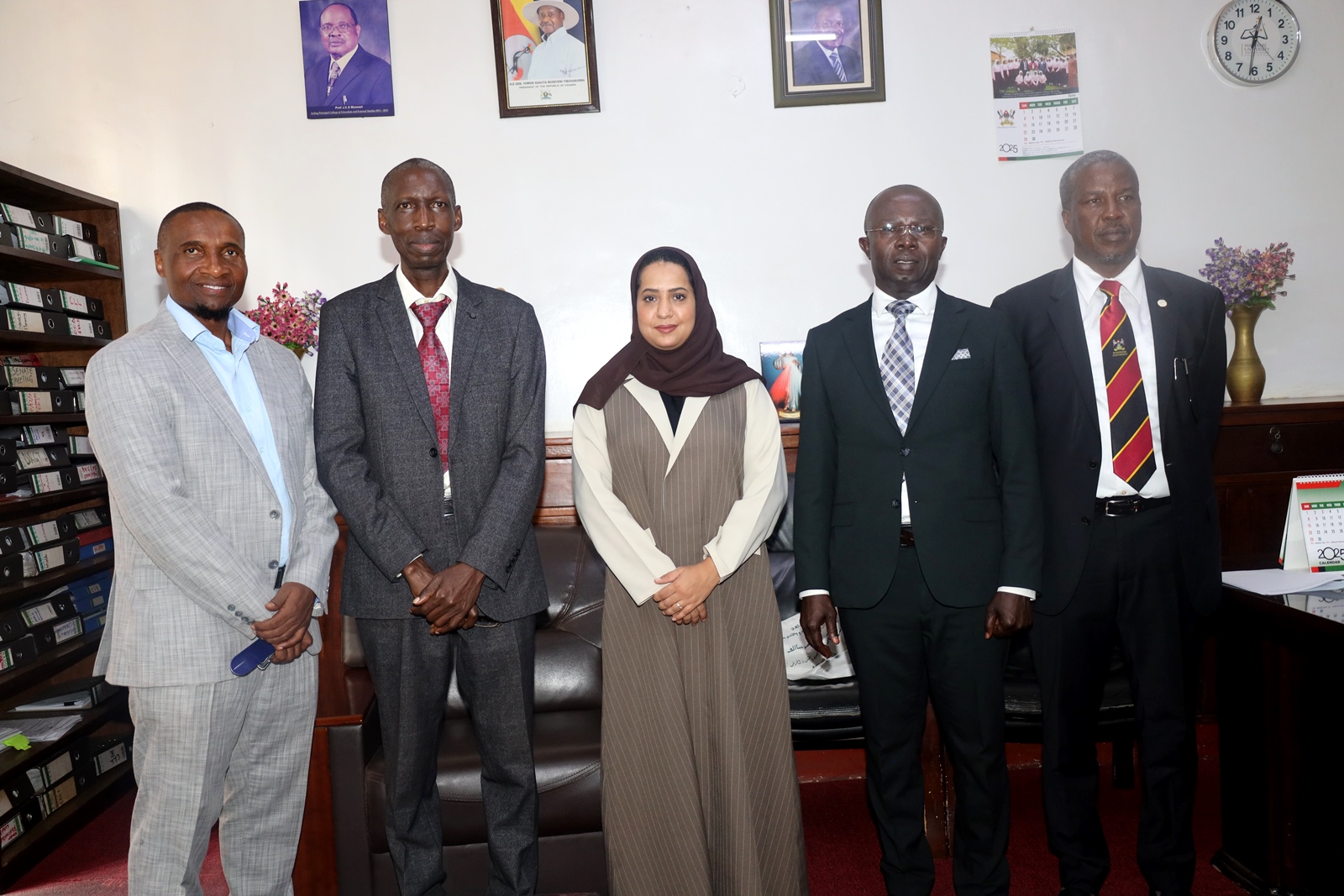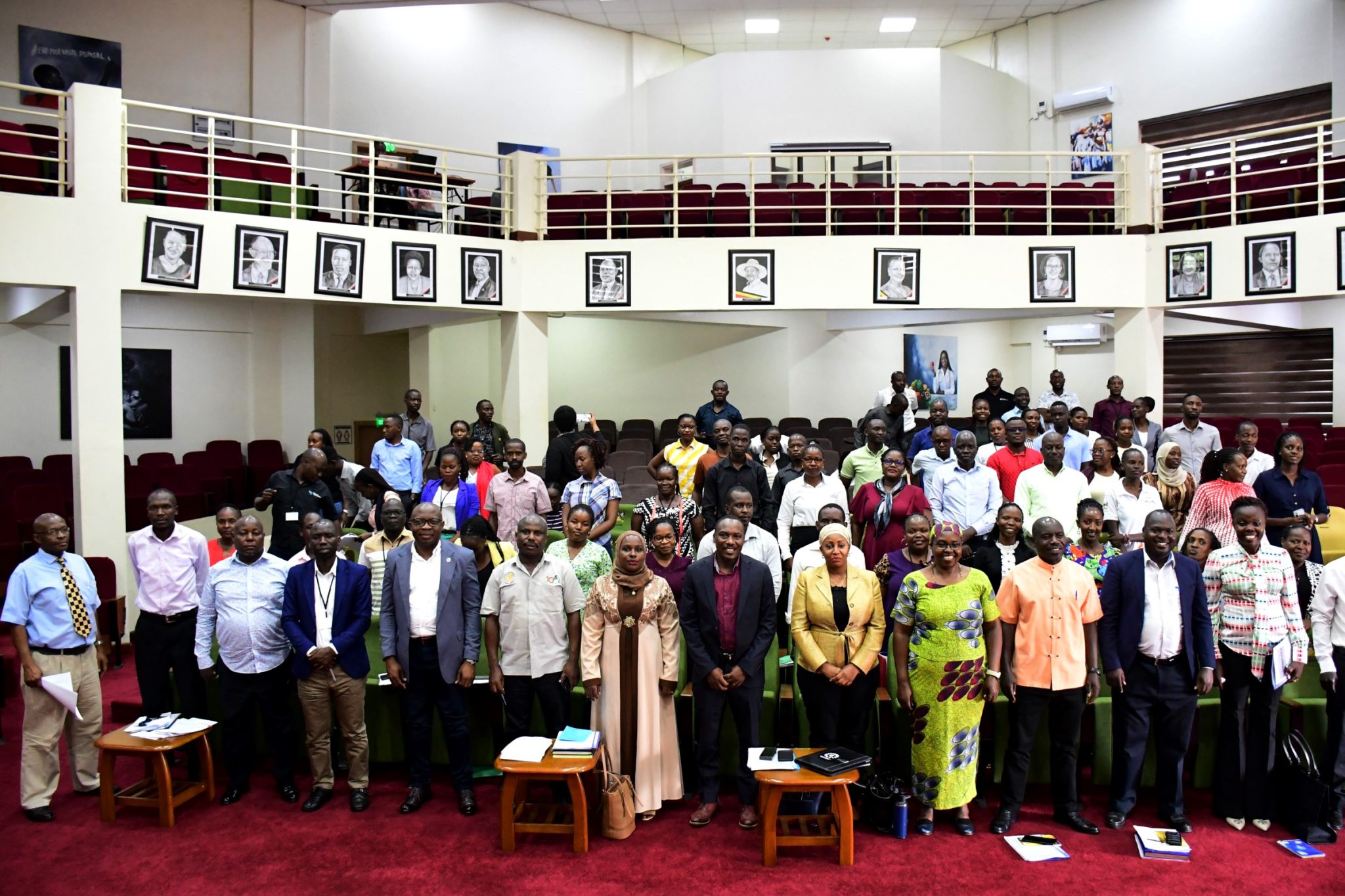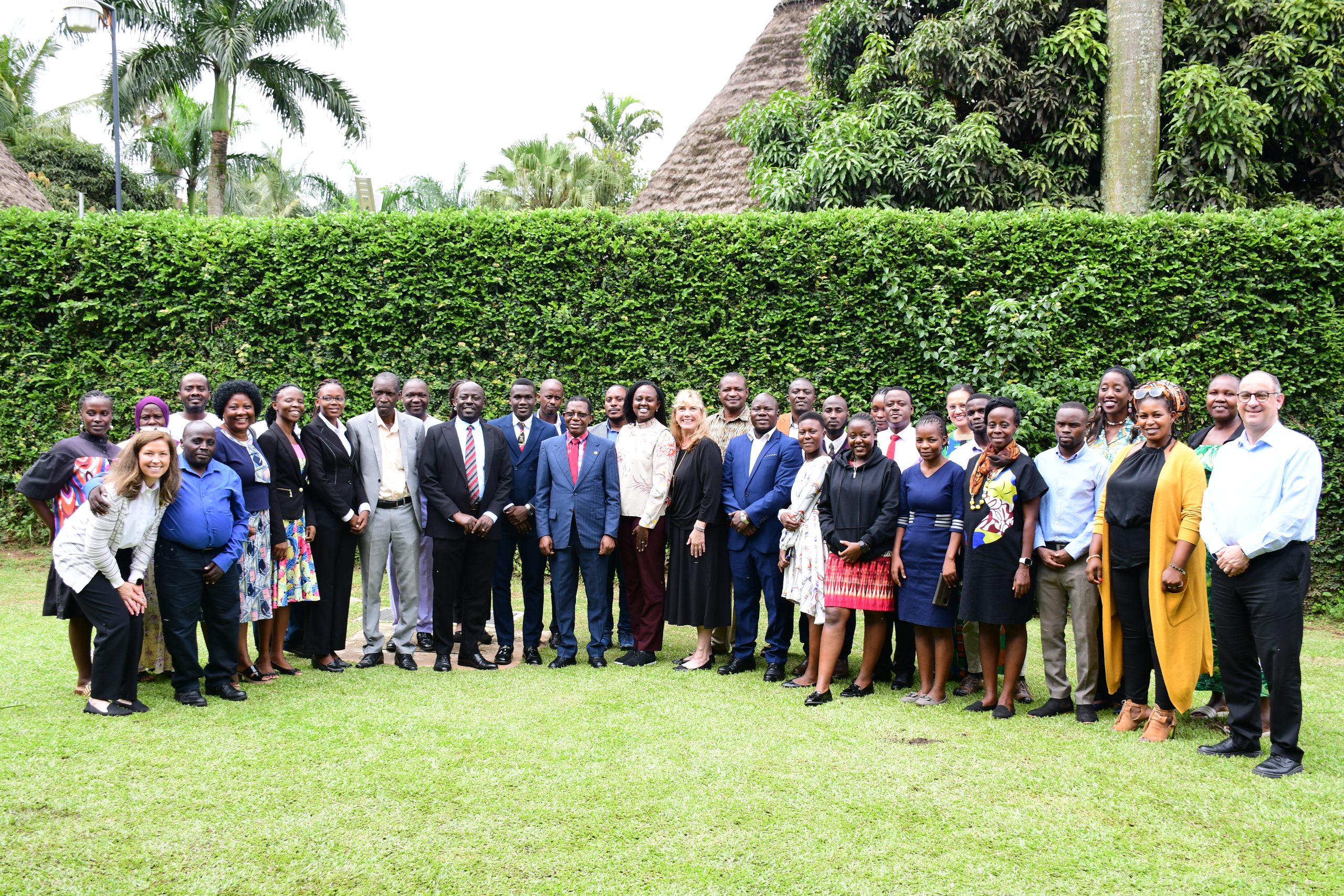Once again, Dr. Caesar Jjingo participated in the 2023 Annual Conference for the National Association of Self-instructional Language Programs (NASILP). The NASILP conferences bring together practitioners that utilise the Self-Instructional Programs across the USA. Self-Instructional Program (SIP) is a model designed to, among other foci, implement the teaching and learning of less commonly taught languages in the USA. In other words, these include the least used languages in different states that students can learn either in US colleges or universities but whose teachers are scarce. Nationwide, the SIPs are coordinated by the NASILP, whose 48th Annual Conference was held at the University of Arizona, October 13-14, 2023. Hosting the 2023 annual conference at the University of Arizona was a great opportunity for Dr. Caesar Jjingo to demonstrate part of his research orientations as far as Kiswahili is concerned. Presently, Dr. Caesar Jjingo is a Fulbright African Research Scholar at the University of Arizona in the Department of Second Language Acquisition and Teaching (https://slat.arizona.edu). Specifically, he is researching more about the competence-based curriculum that has been implemented in Uganda’s lower secondary schools since 2020.
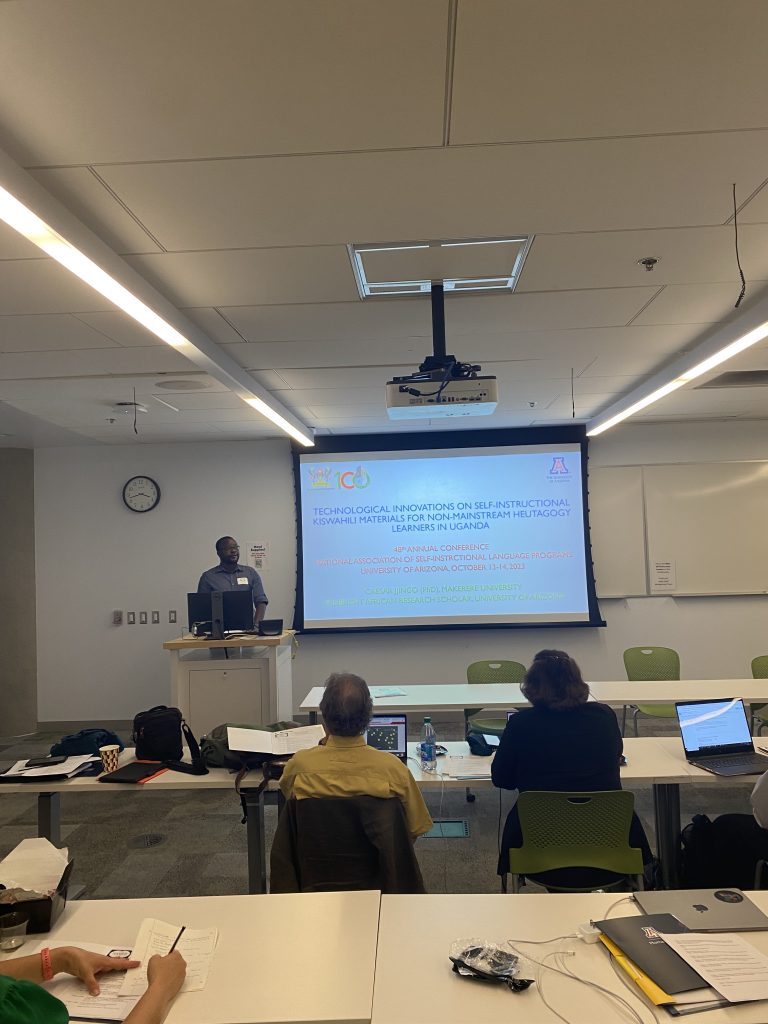

It should be noted that since its inception almost 50 years ago, NASILP has existed in 27 institutions – colleges and universities across the US (https://nasilp.net). Unlike most traditional language models/programs, in SILPs, the language learners are responsible for their learning from materials as recommended by program examiners. SILP examiners are experts in a particular language with language teaching qualifications, unlike tutors (SILP teachers). In this model, much as tutors spend most of the time with learners, physically, they (tutors) are required to be native speakers or close to native speakers of the language they are tutoring without necessary a language teaching background or qualifications. Tutors are critical mainly in establishing natural environments (classrooms) from where learners can use and practice the skills in the language they are learning. For tutors to have sufficient time with the learners, each class is required to have no more than seven learners, which quantifies SILPs as a unique model. This tallies with the fact that a learner can request to learn any language which is not on the list of offerings in a given timeframe (https://clp.arizona.edu/courses/languages/request-language). In otherwards, SILPs largely subscribe to the contemporary (language) teaching and learning philosophies, which underscores elements of learner-centered, interactions, timely feedback, and the use of target language with a native speaker(s) in natural environments – classrooms.
In brief, the SIPs model of language teaching and learning facilitates the establishment of ‘rare’ languages in the US education system. With the existence of technology, it has become even ‘simpler’ to engage in language learning virtually as, e.g., SIP examiners can moderate learning progress – including tests and examinations, without necessarily being in the same physical spaces with learners. Thus, to facilitate such a learning process, even self-instructional materials need to be designed and informed from a technological lens, which was the focus of Dr. Caesar Jjingo NASILP’s 2023 presentation titled “Technological Innovation on Self-Instructional Kiswahili Materials for Non-mainstream Heutagogy Leaners in Uganda.” His presentation with the following Digital Object Identifier 10.13140/RG.2.2.26527.94885, had a particular interest to Ugandans – young or old – outside Uganda’s education system who can hardly access existing Kiswahili instructional materials in mainstream schools. Yet, such Ugandans need to learn Kiswahili – Uganda’s second official language, with limited use across the country.
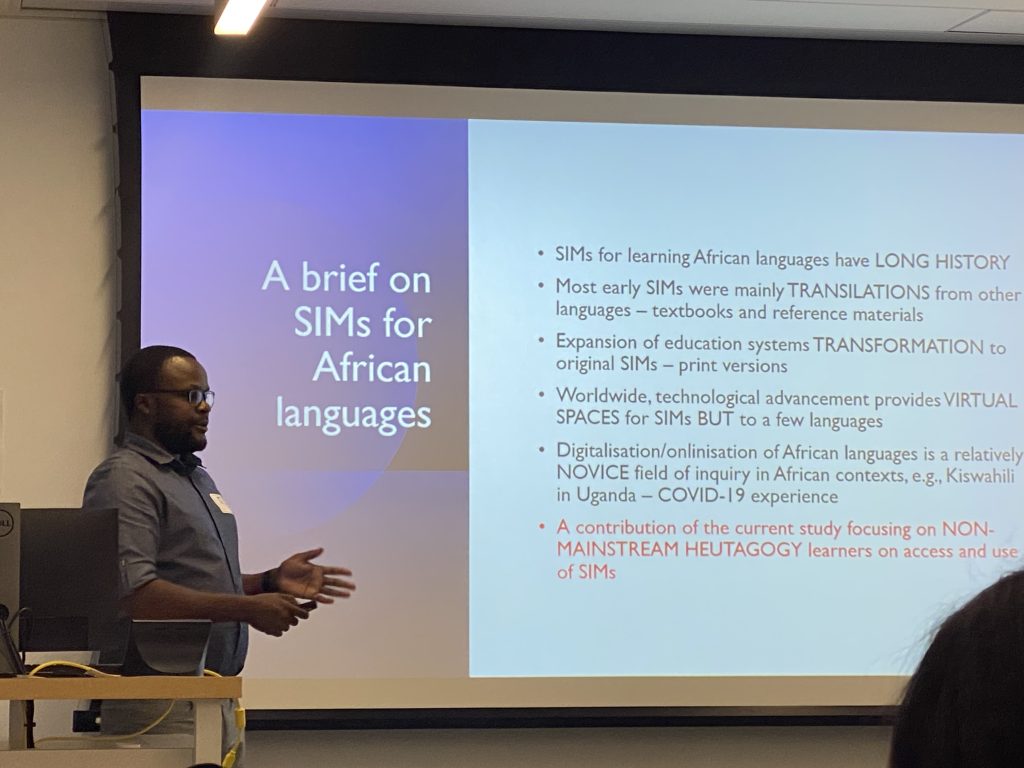
Dr. Caesar Jjingo’s presentation is drawn from the data collection experience of the recently concluded project “Unlocking the Potential of Kiswahili Language in Uganda: Factors and Processes.”, where the study’s participants emphasised a need for self-learning materials of Kiswahili. Thus, in his presentation, Dr. Caesar Jjingo demonstrated diverse ways to engage technology on facets of the Activity Systems Model for non-mainstream heutagogy learners to access and use the existing Kiswahili materials. Likewise, the presentation was concluded by recommending instructional materials’ designers and developers to use technology for the digitalisation and onlinisation of interactive Kiswahili instructional materials in diverse virtual spaces for wider access and usage across Uganda’s multilingual settings.



